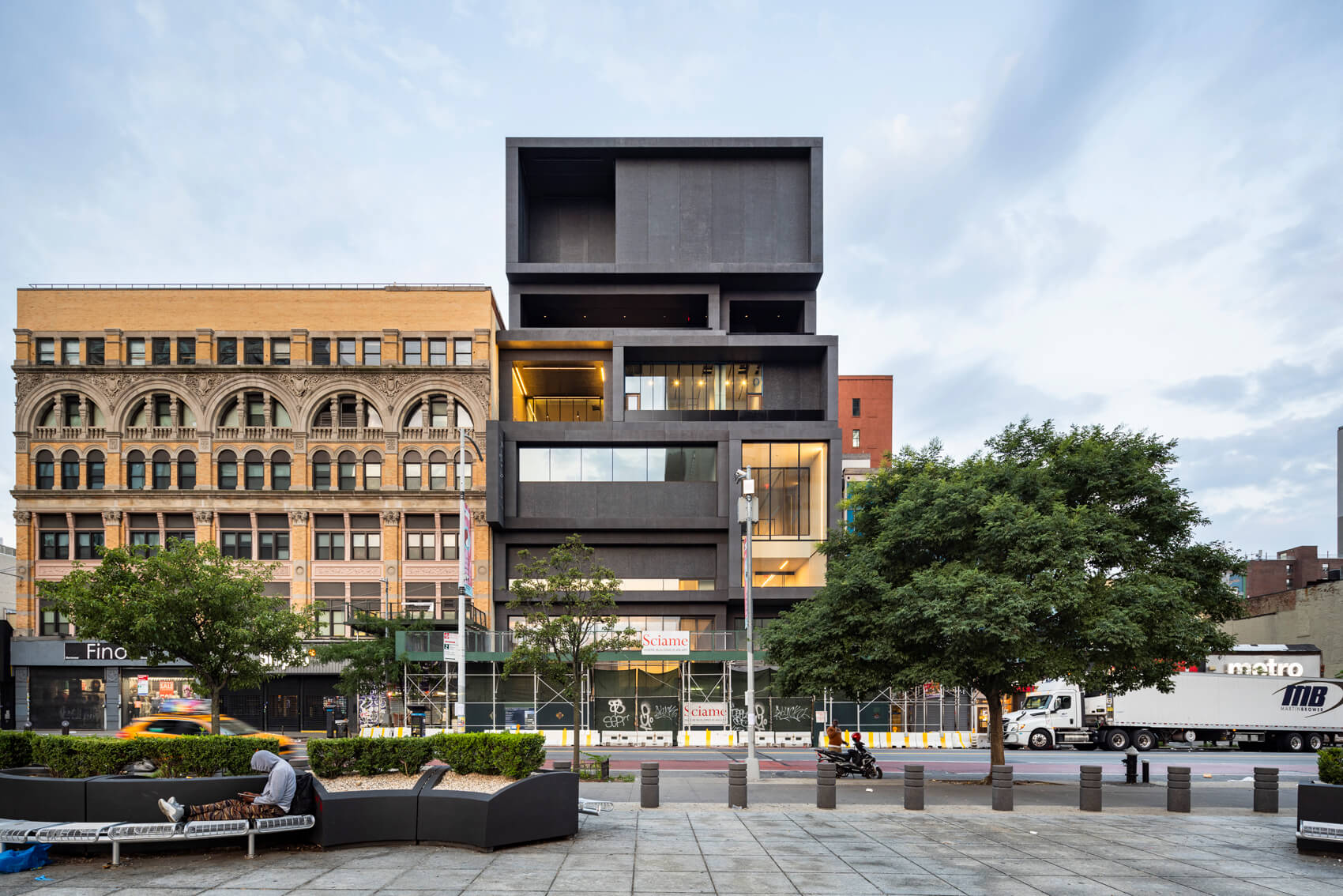Construction is well underway on a new purpose-built home for the Studio Museum in Harlem—a historic institution that contains over 9,000 artworks in its permanent collection. It is looking like we are just about one year out from perusing art by Romare Bearden, Dawoud Bey, Jordan Casteel, Barkley L. Hendricks, Seydou Keïta, Norman Lewis, Lorraine O’Grady, Faith Ringgold, and others.
The museum indebted to the work of African-American artists was founded in 1968 out of a loft building on Fifth Avenue. Its former building, along 125th Street, was demolished to make way for the new facility designed by Adjaye Associates. (David Adjaye, stepped down from the project after sexual misconduct allegations, he has denied, were made against him.) Studio Zewde is designing the new museum’s rooftop terrace and Cooper Robertson is serving as the executive architect on the project.
Curators shared recently that Studio Museum in Harlem’s first exhibition out of its new abode will showcase the work of Tom Lloyd, a Queens-based sculptor who died in 1999. For many, the retrospective marks a full circle: Lloyd was the subject of Studio Museum in Harlem’s first exhibition when it opened 56 years ago in a show called Electronic Refractions II.
“Through the life and career of Tom Lloyd, whose solo exhibition inaugurated our Museum in 1968, we reencounter an artist who was years ahead of his time in both his ideals and artistic practice,” Thelma Golden, Studio Museum in Harlem’s chief curator, said in statement.
“Now, thanks to other artists, scholars, and our Curator, Connie H. Choi, his work is coming to light, Golden continued. This exhibition is joined by a breadth of remarkable works from our collection which will be presented in our other incredible galleries. Taken in its entirety, our collection traces, as few institutions can, a history of creativity by artists of African descent that we will continue to nurture far into the future.”
Tom Lloyd Back On View
The Lloyd show will be the artist’s first solo exhibition since Electronic Refractions II in 1968, curators emphasized. On view will be artworks Lloyd ideated with Alan Sussman, an engineer at Radio Corporation of America. The gadgets the duo made consisted of abstract sculptures with flashing lights that were inspired by quotidian objects like Christmas tree ornaments and plastic Buick light covers.
Other ephemera from Lloyd’s archive on view will include objects that represent his activism work with the Art Workers’s Coalition in the 1960s, as well as documents that chronicle how Lloyd founded the Store Front Museum in 1971, Queens’s first art museum (which Lloyd directed for 15 years).

A number of other artworks will coalesce near pieces by Lloyd that date back to the 1800s, curators added. Pieces by returning artists Houston E. Conwill, David Hammons, and Glenn Ligon will also be located both inside and outside the building.
In addition to gallery space, the new Studio Museum in Harlem, will accommodate a theater, a studio for its artists in residence program, an education center, rooftop terrace, and a cafe. The new building will more than double the exhibition space previously occupied by the museum. Similarly, public areas will be increased by 60 percent.
New photography of the building under construction shows its exterior nearing completion. The charcoal facade, a gray stone, coats the rectangular volumes that shape the building’s vertical massing. In scale the museum building meets that of its neighbors; and its use of masonry alludes to architecture that defines much of Harlem.
Since it was first conceived the new building has hinged on the idea of a “reverse stoop,” envisioned to make the building open and accessible. Also prominent across its street-facing facade, within the boxy volumes, will be exhibition spaces for displaying artwork to passerby.
Studio Museum in Harlem will open its new building and host the retrospective on Tom Lloyd in fall 2025.

